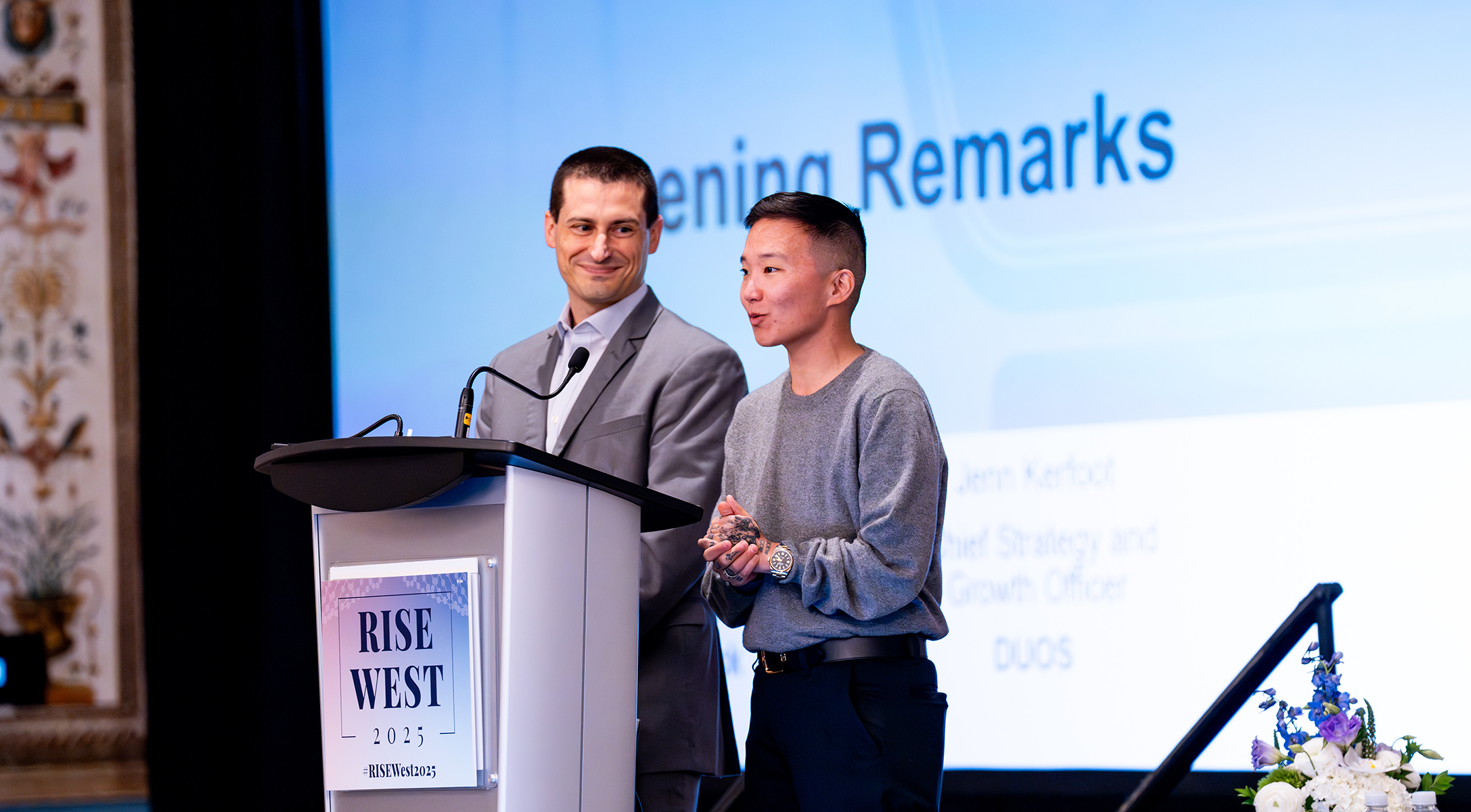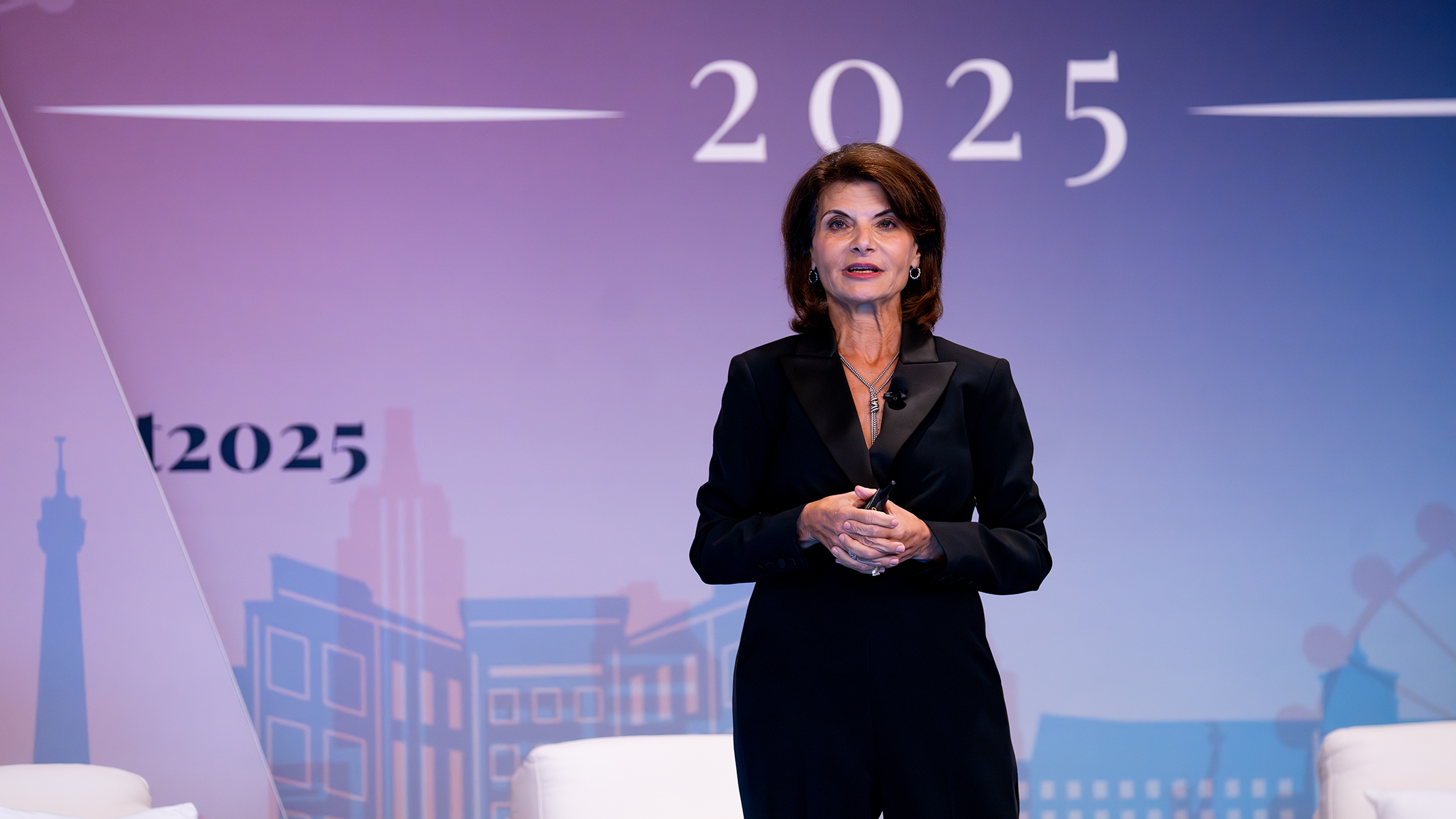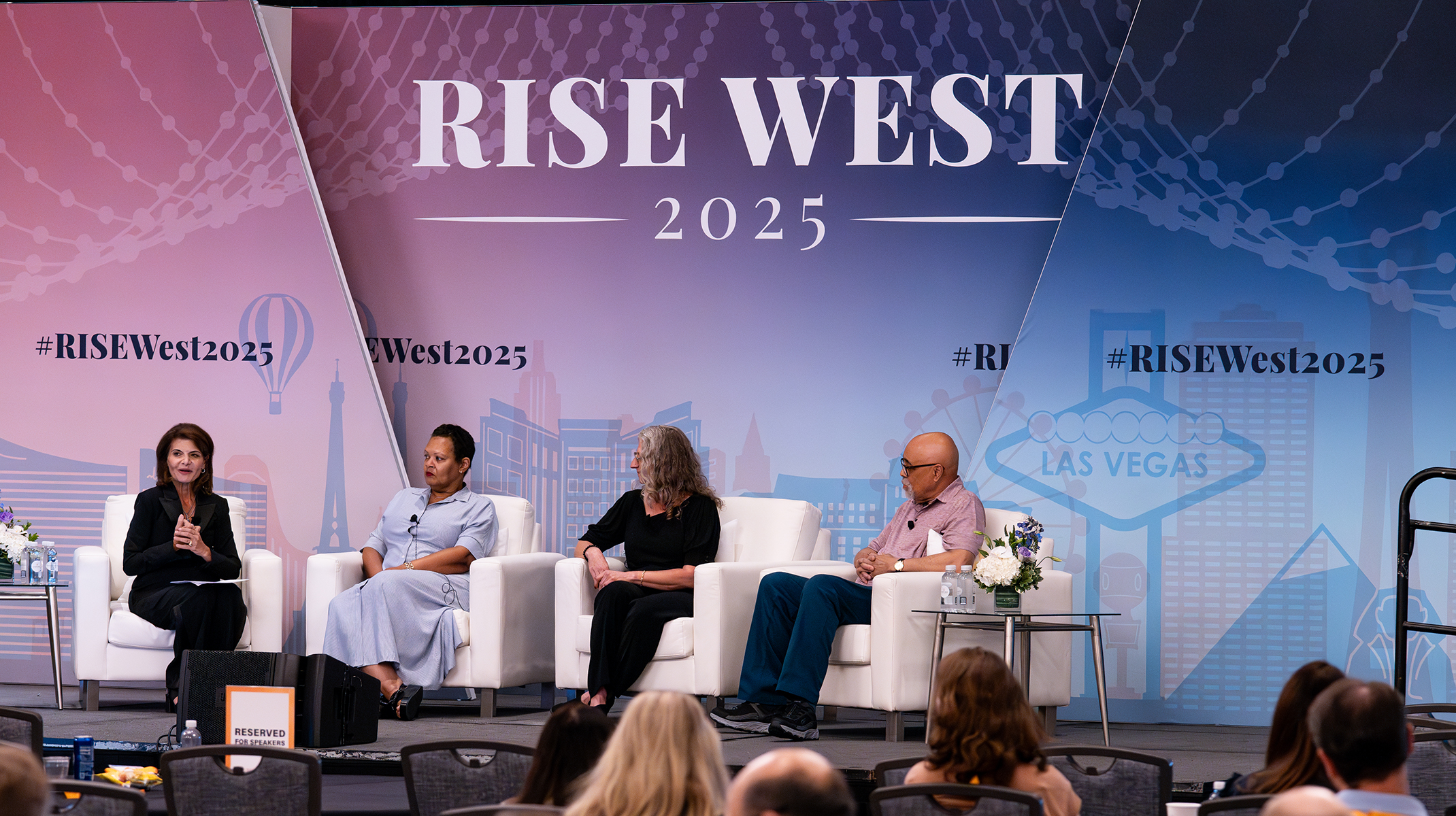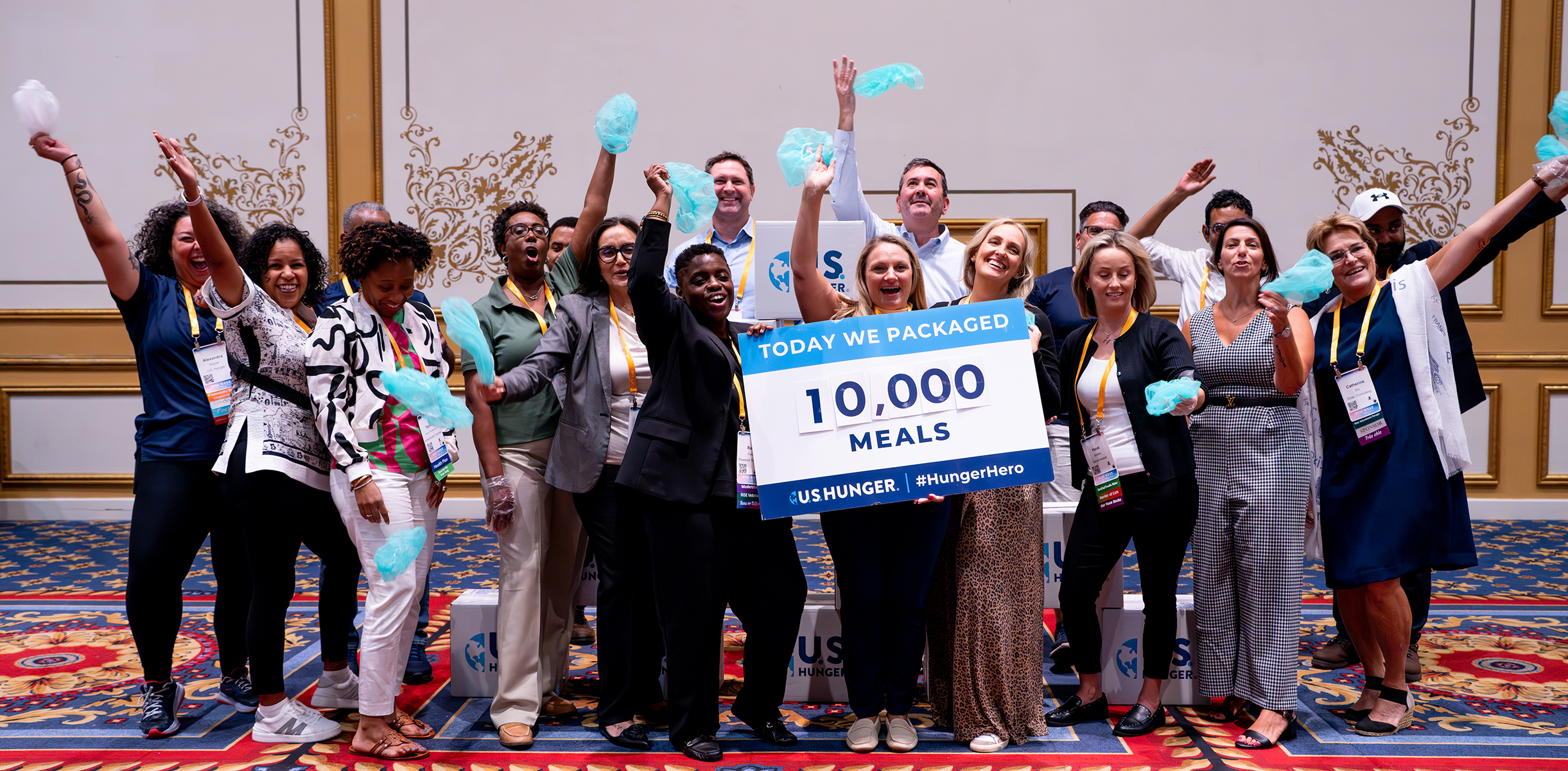Our annual event for Medicare Advantage senior leaders kicked off Monday with three preconference workshops in the morning and an inspiring keynote and dynamic panel in the afternoon. Here are the highlights.

Opening remarks: A need for reinvention and resilience
Marina Adamsky, vice president of production at RISE and the content producer for RISE West, welcomed the 500 attendees to Las Vegas, noting that this year has tested the Medicare Advantage industry like never before and why coming together now is not just important, but essential.
Conference cochairs Rafi Cices, head of BOI, coding & billing, CityBlock, and Jenn Kerfoot, chief strategy and growth officer, DUOS, agreed. The industry has been bombarded with changes contained in the One Big Beautiful Bill Act as well as revisions to Star ratings and the risk adjustment model and the ever-changing regulatory landscape.
“I encourage you all to ground yourself in knowing that the one thing that will never change is the work that we are doing for the people and the members and the patients, which is what matters most,” said Kerfoot, adding, “It’s an absolute privilege in my career to be able to work and serve Medicare-eligible beneficiaries, knowing that someday I will hopefully age into the program. And on the day that I do, I really hope that the program looks radically different than the program that we see today.”
Cices encouraged attendees to network and learn from one another as well as the sponsors in the exhibit hall. “There's a ton of new technology that's going to be better for members, providers, and health plans, and it's critical that we learn best practices and bring that back and educate both people in your industry and people at your organization to build a better program for all of the people and for the US as a whole,” he said.

Keynote by Dr. Archelle Georgiou on navigating change with purpose
Dr. Archelle Georgiou has worn many hats since she earned her medical degree. In addition to her work as a physician, she has served as a C-suite leader, advisor, media personality, and patient advocate. Her presentation focused on her changing roles over the past 30-plus years amid uncertainty in the health care industry and the country, not unlike the rapid changes we are experiencing today.
Currently, she said, health care professionals face dissatisfaction from members and providers, uncertainty over the effects of new technology, and unpredictable changes to regulations. But when she reflected on these themes as she prepared for the presentation, she realized that throughout her career, she had lived through them before. “It's almost like a déjà vu,” she said. “Every single one of these themes is something that I, and whoever is as old as me, have experienced before. And we got through it, and some of us thrived through it.”
Dr. Georgiou then walked through decades of health care challenges and how she pivoted through each decade. To successfully pivot, she said, you must know what you love and what you’re really good at. For her, it’s a love of health care and simplifying it for people.
For example, in the 1990s, the industry faced a backlash to managed care. People worried about restricted access to care and quality of care, and the media only amplified the negativity. Dr. Georgiou was in private practice at the time, and though she loved seeing patients, she didn’t love the effect of managed care on her practice and on her patients. But instead of walking away from the industry, she decided to join it and became the associate medical director at Cigna in hopes of improving managed care.
“I pivoted and made a bold move,” she recalled."It was hard. My colleagues thought I was sort of going to the dark side. But that boldness turned into a few promotions in California, a transition to United HealthCare and a move to the corporate office, a promotion to being the chief medical officer, and the support to eliminate prior authorization reviews.”
Yet, in 2025, the industry is still feeling the backlash to managed care. Once again there is an increase in prior authorization, AI is now making it easier to deny the requests, and patients and providers are finding it increasingly difficult to navigate the system. And though many within the industry are frustrated, she encouraged attendees to think about how they can pivot to improve the system.
“Think about the complexities in the system that don’t make sense and make it harder,” she said. “What changes can you make if you are an individual contributor, a leader of a business unit, or maybe the leader of an entire company where you can make changes to eliminate friction to make the system work better for patients? And even if you are an individual contributor, if you are told to administer some bureaucratic rules, then at least ask why. Maybe you have some good ideas that you could propose that would achieve the same goal but make it easier for people to access care.”

Patients share their health journeys and how to improve the member experience
Dr. Georgiou then moderated a panel conducted in partnership with the Camden Coalition that featured three patient advocates who discussed their challenges within the health system and ways to improve member experience.
Laura Carroll, who lives in a small rural community in Colorado, cares for her disabled husband, who is dually eligible for Medicare and Medicaid. She is particularly grateful for her Medicare Advantage plan. Managing dual eligibility without a Medicare Advantage plan was the most painful experience she had in her life, she said. “You can't even get the full menu of services that are available to a recipient who is duly eligible unless you go through a Medicare Advantage plan.”
However, she urged those who work in the Medicare Advantage industry to write plans that are easy to understand and allow for an apples-to-apples comparison with other carriers so she can figure out what each one covers to determine which one provides access to the greatest level of care.
When panelists were asked what they would change to improve the care experience if they were the CEO of a Medicare Advantage or Medicaid plan, Carroll said she would invest in housing, food, and mental health.
“If your family doesn't have healthy food on the table, if you're concerned about having a good roof over your head, if you are concerned about the safety and wellbeing of the humans in your home, you are never, ever going to be physically well. We must start addressing the social drivers of health in our communities so that we can all rise and thrive together,” she said.
Dionne L. Stalling, a rare disease patient who serves as a caregiver for her mother and also is the founder/executive director of Rare and Black, a nonprofit organization that aims to empower and uplift Black patients living with rare disorders, said her first order of business would be to invest in more mental health benefits. She said she’d also advocate for licensed clinical social workers to be paid for services they provide to adults under Medicaid and Medicare.
Alan Coker, who lives in Manchester, Conn., and has both Medicare Advantage and Medicaid through the HUSKY Health Program, said he would eliminate prior authorization requirements across the board. “Don't put families, individuals through the stress of waiting on your medication or waiting on treatment for the child,” he said. “
And if there had to be someone authorized to review requests for medical services, he said he’d find a qualified doctor who is trained, skilled, and has empathy—and wouldn’t rely on AI for anything.

RISE West attendees give back to the community
In addition to learning and networking, RISE West also participated in volunteer events to benefit the local community.
Special shoutout to the attendees who joined RISE and U.S. Hunger to pack 10,000 meals of red lentil jambalaya that were sent to The Just One Project in Las Vegas.
Later, attendees helped paint a mural on behalf of the Foundation for Hospital Art that will be donated and hung at the Southern Nevada Pediatric Center.
